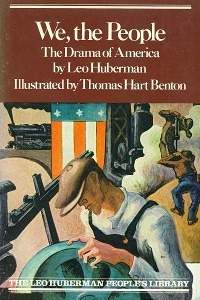Free Speech and the Suppression of Dissent During World War I
$19.00 – $49.00
World War I, given all the rousing “Over-There” songs and in-the-trenches films it inspired, was, at its outset, surprisingly unpopular with the American public. As opposition increased, Woodrow Wilson’s presidential administration became intent on stifling antiwar dissent. Wilson effectively silenced the National Civil Liberties Bureau, forerunner of the American Civil Liberties Union. Presidential candidate Eugene Debs was jailed, and Deb’s Socialist Party became a prime target of surveillance operations, both covert and overt. Drastic as these measures were, more draconian measures were to come.
In his absorbing new book, Eric Chester reveals that out of this turmoil came a heated public discussion on the theory of civil liberties—the basic freedoms that are, theoretically, untouchable by any of the three branches of the U.S. government. The famous “clear and present danger” argument of Supreme Court Justice Oliver Wendell Holmes, and the “balance of conflicting interest” theory of law professor Zechariah Chafee, for example, evolved to provide a rationale for courts to act as a limited restraint on autocratic actions of the government. But Chester goes further, to examine an alternative theory: civil liberties exist as absolute rights, rather than being dependent on the specific circumstances of each case. Over the years, the debate about the right to dissent has intensified and become more necessary. This fascinating book explains why, a century after the First World War—and in the era of Trump—we need to know about this.
Eric Chester has written a spendidly researched and movingly told tale of the suppression of WW I anti-war movements in Great Britain and the United States. The book is encyclopedic in its coverage, but Chester’s detailed narrative of the government’s prosecution of Eugene Debs for delivering a mild anti-war speech and Woodrow Wilson’s vindictive insistence on imprisoning Debs and silencing dissent stands out as a chilling reminder of the fragility of freedom of speech when it really matters. His book is a reminder to progressives that preserving freedom of speech is crucial to achieving social change.
—Burt Neuborne, Norman Dorsen Professor in Civil Liberties, NYU School of Law; author, When at Times the Mob Is Swayed: A Citizen’s Guide to Defending Our Republic
Enhanced for academia with the inclusion of a five page Chronology, fifty-one pages of Notes, a seven page Glossary, a ten page Bibliography, and a twenty-five page Index, Free Speech and the Suppression of Dissent During World War I is a meticulous work of informed and informative scholarship that is especially recommended for community, college, and university library 20th Century American History & Political Science collections.
—Midwest Book Review
Eric T. Chester taught economics at the University of Massachusetts in Boston and San Francisco State University. A committed activist for more than fifty years, he was vice-presidential candidate for the Socialist Party in 1996. He is the author of several books, including Rag-Tags, Scum, Riff-Raff, and Commies: The U.S. Intervention in the Dominican Republic, 1965–1966, The Wobblies in Their Heyday: The Rise and Destruction of the Industrial Workers of the World in the World War I Era, and Yours for Industrial Freedom: The Industrial Workers of the World from the Inside.
Number of Pages: 504
Publication Date: August 2020
Paperback ISBN: 978-1-58367-868-8
Cloth ISBN: 978-1-58367-869-5
eBook ISBN: 978-1-58367-870-1
Related products
-
Monthly Review Volume 2, Number 10 (February 1951) [PDF]
$10.00 Add to cart -
Monthly Review Volume 2, Number 7 (November 1950) [PDF]
$10.00 Add to cart -
Monthly Review Volume 2, Number 6 (October 1950) [PDF]
$10.00 Add to cart -
Monthly Review Volume 2, Number 1 (May 1950) [PDF]
$10.00 Add to cart -
Monthly Review Volume 1, Number 7 (November 1949) [PDF]
$10.00 Add to cart -
We, the People: The Drama of America
$15.00 – $18.00 Select options This product has multiple variants. The options may be chosen on the product page

![Monthly Review Volume 2, Number 10 (February 1951) [PDF]](https://monthlyreview.org/wp-content/uploads/2015/09/Monthly Review Volume 2, Number 10 (February 1951) [PDF].jpg)
![Monthly Review Volume 2, Number 7 (November 1950) [PDF]](https://monthlyreview.org/wp-content/uploads/2015/09/Monthly Review Volume 2, Number 7 (November 1950) [PDF].jpg)
![Monthly Review Volume 2, Number 6 (October 1950) [PDF]](https://monthlyreview.org/wp-content/uploads/2015/09/Monthly Review Volume 2, Number 6 (October 1950) [PDF].jpg)
![Monthly Review Volume 2, Number 1 (May 1950) [PDF]](https://monthlyreview.org/wp-content/uploads/2015/09/Monthly Review Volume 2, Number 1 (May 1950) [PDF].jpg)
![Monthly Review Volume 1, Number 7 (November 1949) [PDF]](https://monthlyreview.org/wp-content/uploads/2015/09/Monthly Review Volume 1, Number 7 (November 1949) [PDF].jpg)
